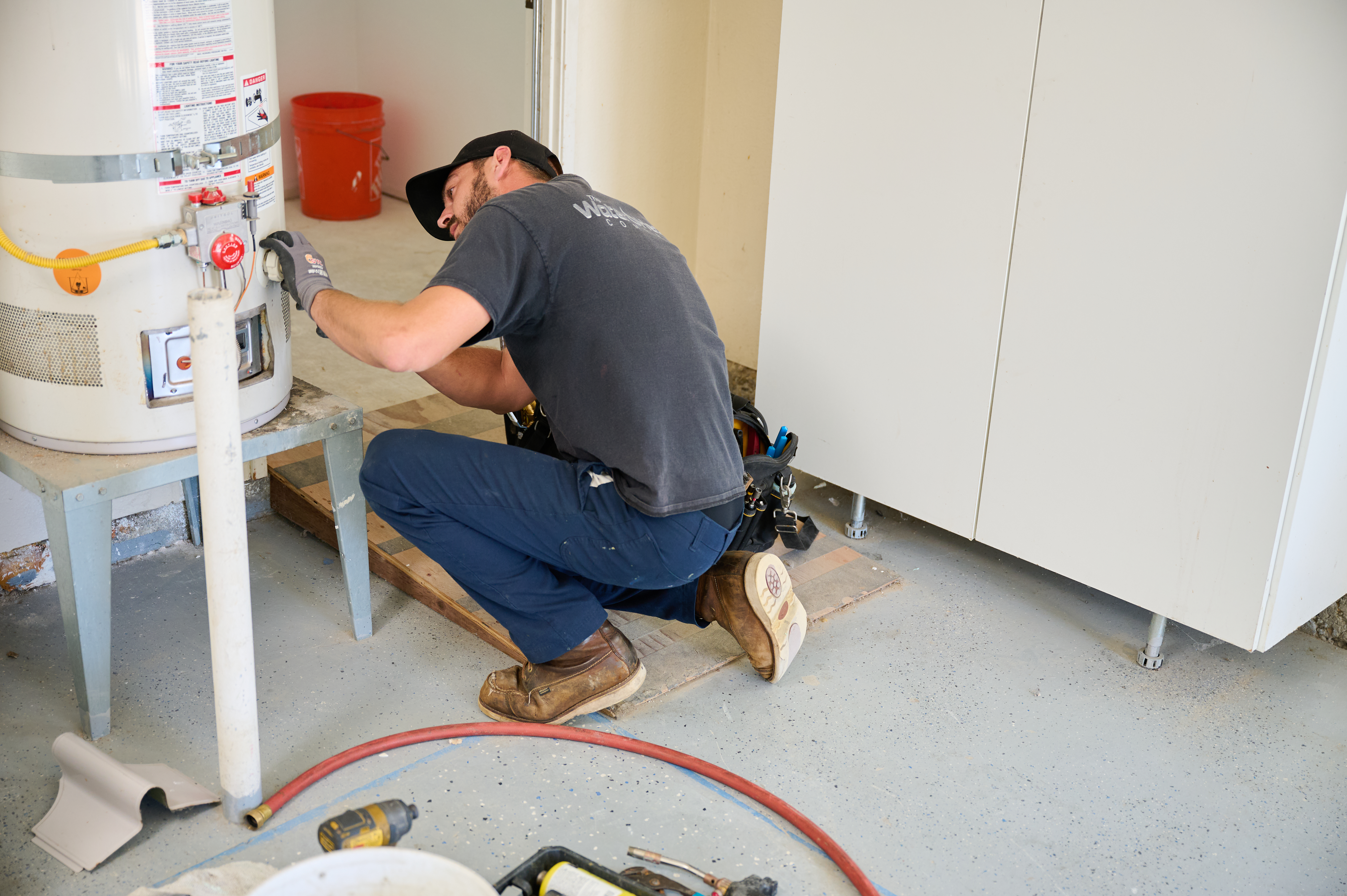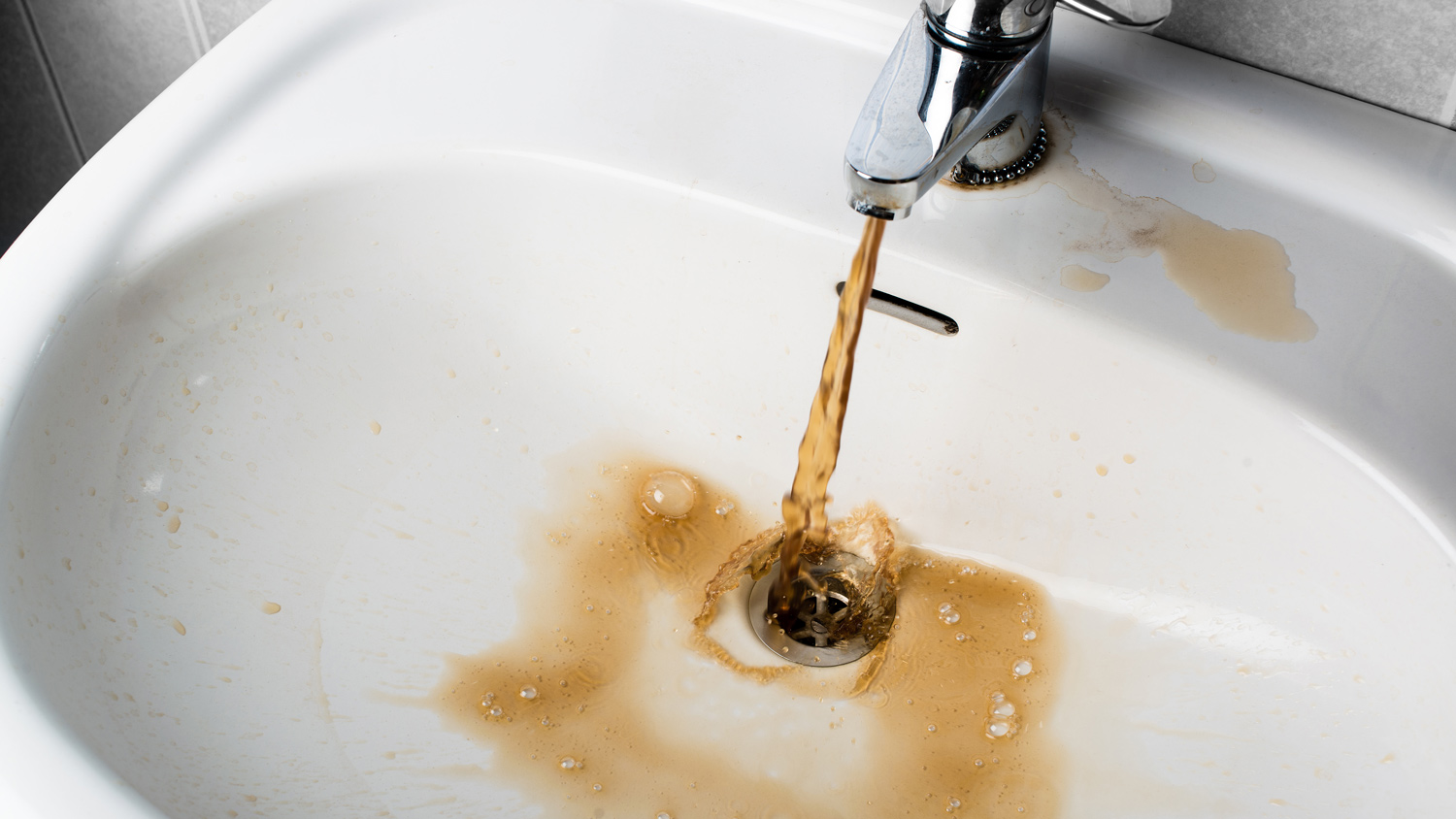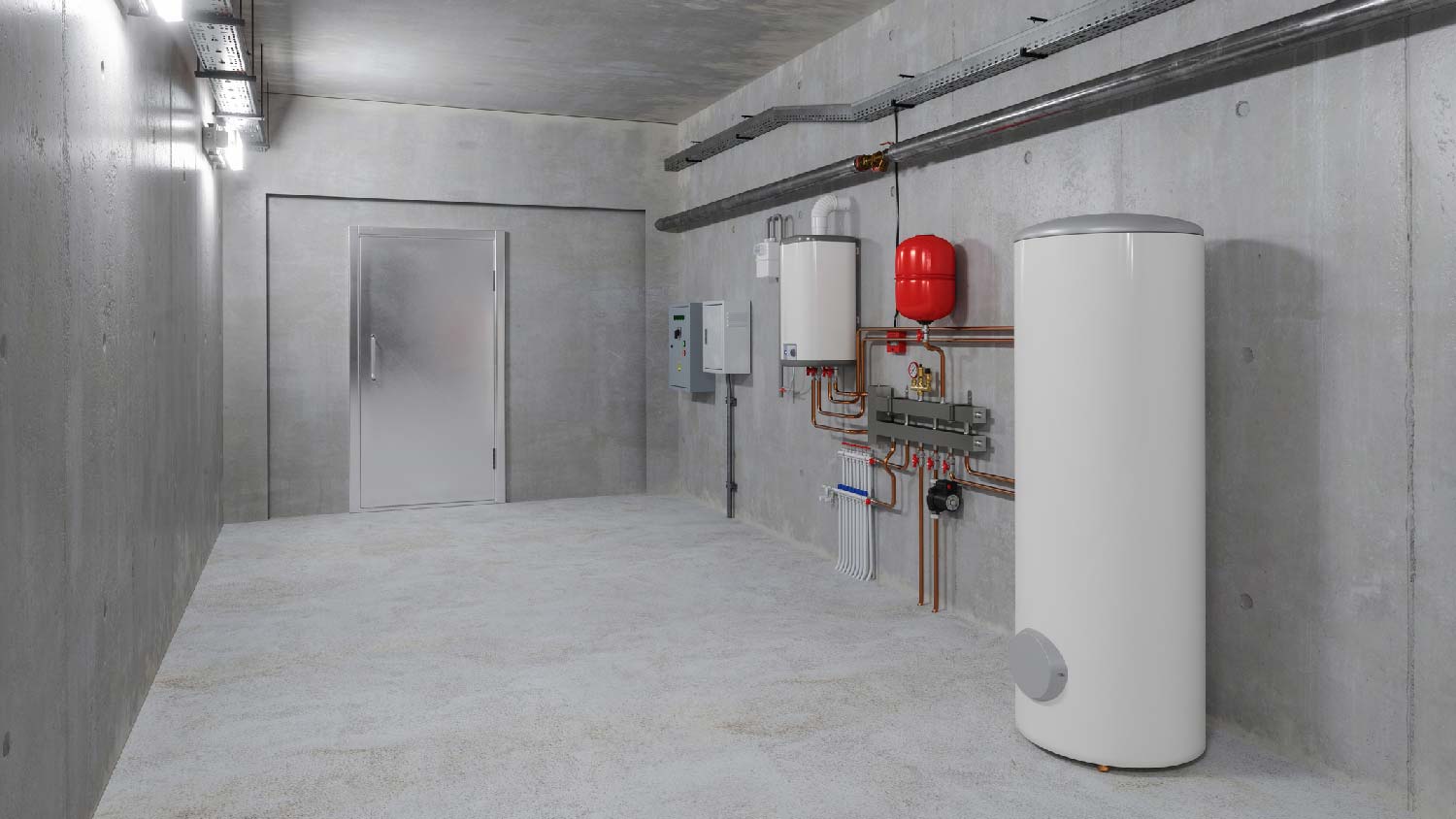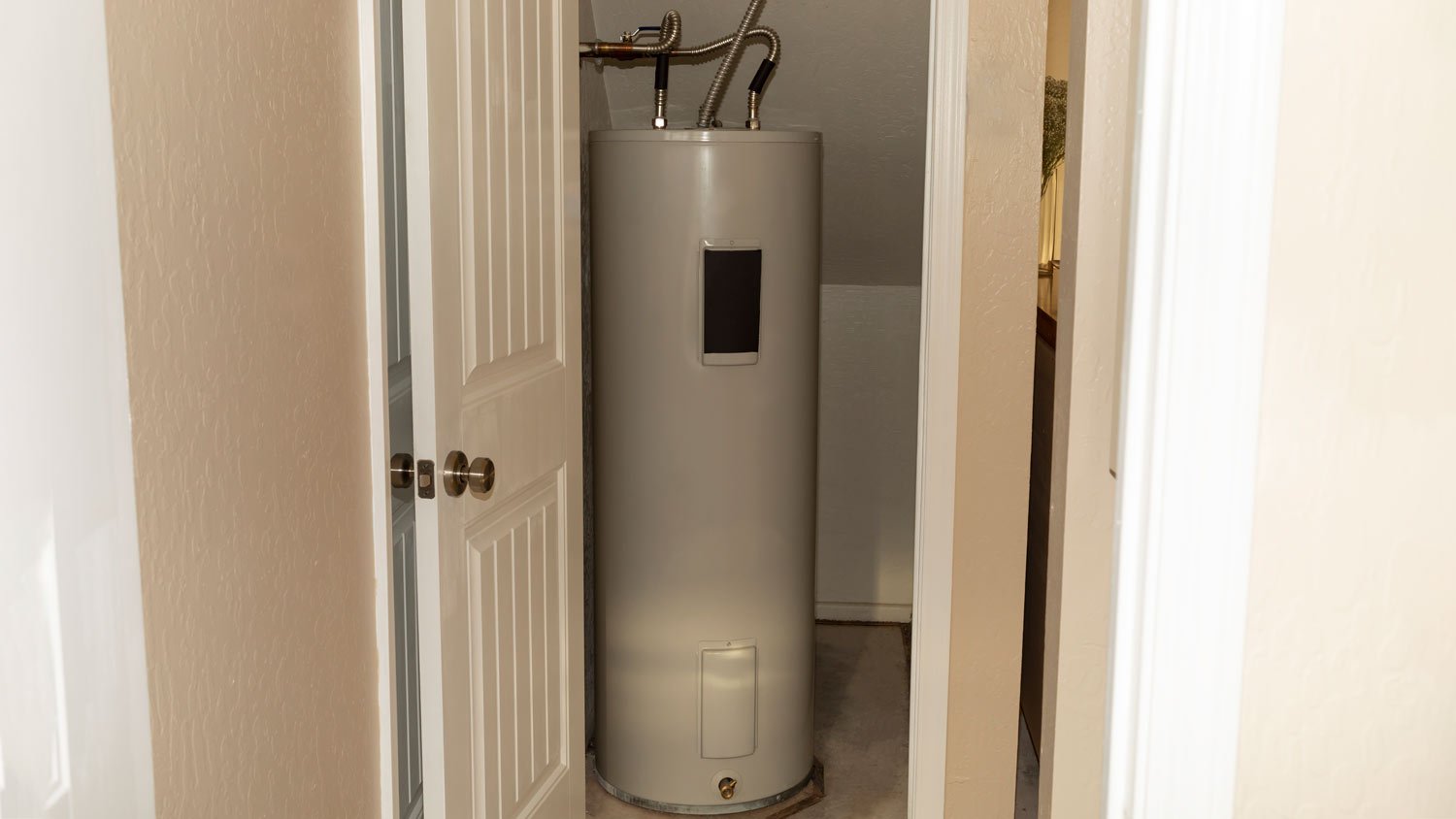
Tankless water heater costs in Columbus, OH depend on the size of your water heater, location, fuel type, and more. Keep reading to calculate your expenses.
Look out for these red flags to prevent future explosions


The smell of rotten eggs might indicate a gas leak.
T&P valve malfunctions commonly lead to explosion risks.
Look out for any brown water in the tank.
You should always call a qualified pro to fix these water heater problems.
Water heaters play a critical role in the home, making showering and cleaning more comfortable and effective. However, water heater problems are major concerns that can lead to dangerous explosions, so it's critical that you know how to spot early warning signs and address problems before they get worse. If you have a water heater at home, make sure you're aware of the following signs, which can indicate that your tank is at risk of exploding.
The smell of rotten eggs or sulfur can indicate that you have a gas leak. An odorous substance called mercaptan is added to gas, which is normally odorless, to make it easier to tell if there's a leak. When gas escapes from the water heater and finds a spark or flame, it can create an explosion.
In addition to a dangerous explosion, gas leaks can cause carbon monoxide poisoning as the leaked gas can replace the oxygen in the room. Carbon monoxide poisoning can be fatal, so if you suspect a leak, leave the house immediately, taking all household members, including pets, with you. Then call 911.
Water heaters have a temperature and pressure (T&P) relief valve that releases any excess pressure or heat to maintain a stable environment for the tank, preventing potential explosions. But if the valve is leaking more than it usually does, it likely means that there's consistently too much pressure or overheating in the tank, which can pose an explosion risk. It might also mean that the valve is broken. In either case, you should call a local water heater contractor to fix it ASAP.
Speaking of the T&P valve, if you notice that it's consistently open, you might have an explosion risk on your hands. A working valve should open periodically to discharge excess water and maintain a stable environment in the tank, but if it stays open, the valve is either broken or under excessive pressure, both of which are serious problems that you should call a pro to fix immediately.

Over time, a water heater's metal tank can start to rust and corrode as it interacts with water minerals, so if you see brown water, it's likely mixing with rust. Rust and corrosion can compromise the tank's structural integrity, making it more susceptible to leaks, ruptures, and potential explosions.
If your water heater isn't properly installed, it can cause issues like improper venting, faulty connections, gas leaks, and incorrect pressure settings. All of these issues can cause excess pressure in the water heater, which can lead to explosions, so make sure you hire a qualified pro to install and maintain your water heater.
If you're concerned that your water heater wasn't properly installed, hire a professional to inspect it to make sure all parts are in working order.
Water minerals, like calcium and magnesium, tend to accumulate in a water heater tank over time, creating a sediment buildup at the bottom. This buildup begins to act as insulation, so when the water heater attempts to warm the water, it needs to work harder to get through the sediment to do its job.
In some cases, this can create excess heat in the tank, which might lead to boiling. The boiling creates little steam pockets that can then cause the tank to shake or rumble as it moves. This whole process can lead to rapid pressure fluctuations and potential explosions. It can also degrade the integrity of the tank.
If your water heater won't drain or drains as efficiently as normal, you might notice a clog from sediment and debris in the tank. One easy way to remove hard water minerals is to install a water purification system or a water filter, such as an ion exchange filter or a reverse osmosis system.
Several factors can cause your water heater to explode. Identifying common causes will give you the upper hand when you contact your local plumber to investigate and assess the situation. Here are some of the biggest exploding water heater factors to keep in mind:
Hard water: If you live in an area with hard water, calcium, magnesium, and other particles that lead to sediment buildup, this increases how hard your water heater has to work to heat water.
Faulty installation: An incorrectly installed water heater can cause all sorts of problems, making it difficult to assess what went wrong. A licensed plumber can quickly assess this situation and install your water heater correctly.
Gas leaks: Many water heater explosions come from gas leaks meeting electrical wiring and causing a fire.
Faulty Temperature and Pressure Relief Valve: A leaky T&P relief valve can cause a buildup in pressure and heat—a recipe for explosions.
If you notice any of the aforementioned issues, you should call a pro to fix your water heater as soon as possible. You can also take the following steps for preventative maintenance on a hot water heater to keep your unit in tip-top shape:
Schedule regular inspections and maintenance for the water heater.
Drain the water heater tank every year to remove sediment.
Install a whole-house water filter to keep sediment from ever reaching your water heater.
Routinely check and test the T&P valve to make sure it's functioning properly.
Regularly check around the tank for any leaks.
Set the thermostat below 120 degrees Fahrenheit to prevent overheating.
Install an expansion tank to manage pressure changes.
Install a gas leak detector.
Don't store any items on top of the water heater.
Regularly check for damaged or corroded water hoses and replace them when needed.
If you notice any of the above-mentioned signs, you should call a pro to inspect the water heater immediately. Professional water heater contractors will have the tools, knowledge, safety equipment, and experience required to diagnose and fix the problem properly. They can also help you replace the water heater with a new one, if necessary. Trying to tackle these fixes yourself can lead to very dangerous and costly problems.
If your water heater problem is not an emergency and a pro can repair your water heater, the average cost to hire a plumber falls between $45 and $200 per hour. However, if your issue is urgent and you need to hire a pro ASAP, emergency plumber costs range from $100 to $500 per hour.
Sometimes, upgrading an old water heater to a newer unit is the best course of action. Replacing a water heater costs anywhere from $900 to $1,800 on average, with high-efficiency, solar, and hybrid water heaters falling at the higher end of the price range. If you want to avoid a tank water heater entirely, a tankless water heater could be worth it. These units help homeowners save on energy bills, but they do cost more upfront and more to repair.
From average costs to expert advice, get all the answers you need to get your job done.

Tankless water heater costs in Columbus, OH depend on the size of your water heater, location, fuel type, and more. Keep reading to calculate your expenses.

Learn all the factors that influence the cost to install a heat pump water heater at your home.

Wondering how much a water heater expansion tank costs? Use this cost guide to get an accurate estimate and learn how to choose the right one for your home.

Hot water expansion tanks help protect your home by preventing an overflow of your water tank. Learn why you may need one, how much they cost, and their benefits.

Purchasing a water heater warranty to protect yourself against unforeseen repair costs might not seem important, but it could save you big bucks in the long run.

Learning how to replace a water heater in your home is a challenging task that most people will want to leave to the professionals. But if you’ve got expert-level skills, here’s what to do.